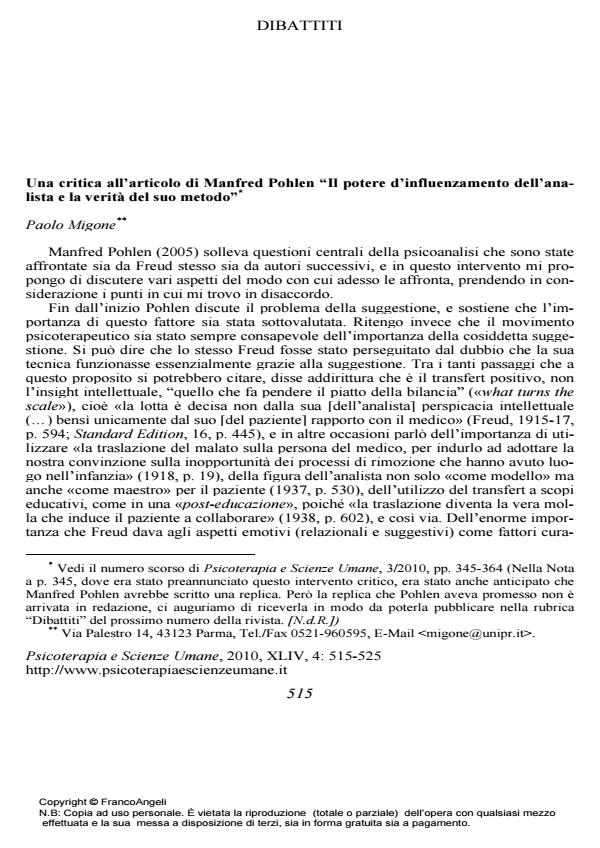A critique to Manfred Pohlen’s paper "the influencing power of the psychoanalyst and the truth of his method"
Journal title PSICOTERAPIA E SCIENZE UMANE
Author/s Paolo Migone
Publishing Year 2010 Issue 2010/4
Language Italian Pages 11 P. 515-525 File size 285 KB
DOI 10.3280/PU2010-004005
DOI is like a bar code for intellectual property: to have more infomation
click here
Below, you can see the article first page
If you want to buy this article in PDF format, you can do it, following the instructions to buy download credits

FrancoAngeli is member of Publishers International Linking Association, Inc (PILA), a not-for-profit association which run the CrossRef service enabling links to and from online scholarly content.
Manfred Pohlen’s paper published in the last issue of Psicoterapia e Scienze Umane (2010, 44, 3: 345-364) is criticized. Some of the critiques are the following: the suggesting power of the psychoanalyst, which has been shown also by empirical research, was well known by Freud and later authors (e.g., see the relational factors and the identification with the analyst, or the concept of "positive unobjectionable transference"); the dichotomization between natural sciences and the humanities (or nomothetic vs. idiographic approaches) is criticized; the analyst’s influencing power and his perspectivism in guiding the patient was already in Jung and was also discussed by hermeneutics; the idea of activating the patient’s potentials is similar to the concept of "selfactualizazion" of Carl Rogers and humanistic psychology in general; in John Bowlby’s attachment theory there is not a biological reductionism but an emphasis on object relations; and so on.
Keywords: Suggestion, psychoanalytic technique, psychoanalysis as art, history of psychoanalytic theory of technique, critique
Paolo Migone, Una critica all’articolo di Manfred Pohlen "Il potere d’influenzamento dell’analista e la verità del suo metodo" in "PSICOTERAPIA E SCIENZE UMANE" 4/2010, pp 515-525, DOI: 10.3280/PU2010-004005